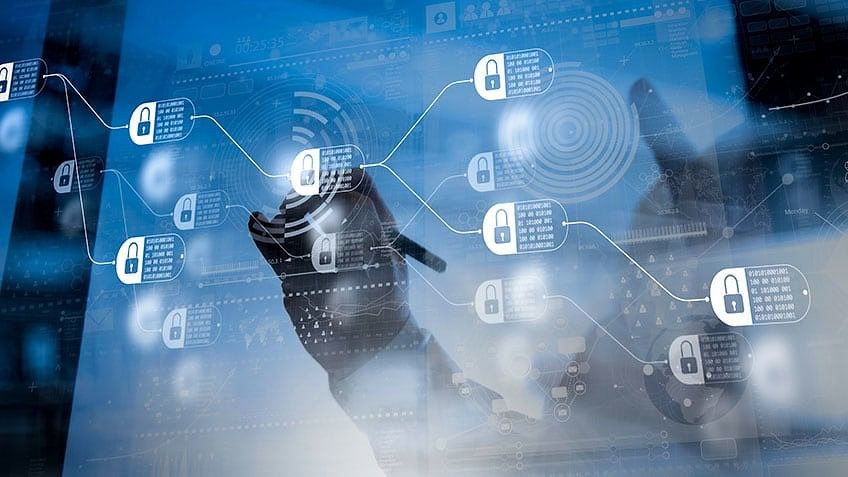In an increasingly digitized world, the security of digital transactions has become a paramount concern. The rise of online banking, e-commerce, and digital payments has created a wealth of opportunities for both businesses and consumers. However, it has also attracted the attention of cybercriminals seeking to exploit vulnerabilities in the digital landscape. Blockchain technology has emerged as a robust and innovative solution to address these security challenges. In this article, we will explore the role of blockchain in securing digital transactions, from its fundamental principles to real-world applications.
Understanding Blockchain Technology
Decentralization and Transparency At its core, blockchain is a distributed ledger technology that operates on a decentralized network of computers. This network is designed to be transparent and resistant to tampering. Each block in the chain contains a list of transactions, and once added, it cannot be altered without consensus from the network participants.
Cryptography and Security Blockchain relies heavily on cryptographic techniques to secure transactions. Public and private keys are used to authenticate users and ensure the confidentiality and integrity of data. The decentralized nature of the technology also makes it highly resilient to single points of failure and cyberattacks.
Securing Digital Transactions with Blockchain
Digital Identity Verification Blockchain can play a crucial role in verifying digital identities securely. When users create a digital identity on a blockchain, they have control over their personal information. This reduces the risk of identity theft and fraud, as individuals can selectively share their identity data with trusted parties.
Smart Contracts Smart contracts are self-executing agreements with the terms of the contract directly written into code. These contracts automate transactions and enforce the agreed-upon rules without the need for intermediaries. Smart contracts are tamper-proof, reducing the risk of fraud or disputes.
Supply Chain Security Blockchain technology is increasingly being used to secure supply chains. It allows for real-time tracking of products and goods, providing a transparent and immutable record of their journey from manufacturer to consumer. This transparency helps prevent counterfeiting and ensures product authenticity.
Cryptocurrencies and Digital Payments
Bitcoin and Beyond Blockchain gained prominence with the introduction of Bitcoin, the first cryptocurrency. Bitcoin transactions are recorded on a public blockchain, making them transparent and secure. Since then, numerous cryptocurrencies have emerged, each with its own blockchain and unique features.
Digital Wallets Digital wallets, which store cryptographic keys, are used to secure and manage cryptocurrencies. These wallets offer various security features, such as multi-factor authentication and hardware wallets, to protect users’ digital assets.
Cross-Border Transactions Blockchain technology is transforming cross-border transactions by eliminating the need for traditional banking intermediaries. Cryptocurrencies and blockchain networks enable faster, cheaper, and more secure international money transfers.
Financial Services and Banking
Fraud Prevention Banks and financial institutions are exploring blockchain to enhance security and reduce fraud. Blockchain’s transparent and tamper-proof ledger can help detect and prevent unauthorized transactions or fraudulent activities.
Know Your Customer (KYC) Compliance Blockchain-based KYC solutions streamline the onboarding process for customers while ensuring compliance with regulations. Users can share their KYC information securely, reducing the risk of identity fraud.
Healthcare and Medical Records
Securing Patient Data In the healthcare sector, blockchain is used to secure patient data and electronic health records. Patients have control over who can access their medical information, and healthcare providers can securely share data for improved patient care.
Clinical Trials and Drug Traceability Blockchain helps ensure the integrity of clinical trial data and the traceability of pharmaceutical products. This transparency is critical for verifying the safety and efficacy of drugs.
Challenges and Considerations
Scalability Blockchain networks face scalability challenges as transaction volumes increase. Solutions like sharding and layer-2 protocols are being developed to address these issues.
Regulatory Compliance The regulatory landscape for blockchain and cryptocurrencies is evolving. Businesses must navigate a complex web of regulations to ensure legal compliance.
Environmental Concerns The energy consumption associated with some blockchain networks, particularly proof-of-work systems, has raised environmental concerns. Efforts are underway to develop more energy-efficient consensus mechanisms.
The Future of Blockchain in Securing Digital Transactions
Blockchain technology continues to evolve, offering innovative solutions to enhance the security of digital transactions across various industries. As scalability and regulatory challenges are addressed, blockchain’s role in securing digital transactions is likely to expand. Its ability to provide trust, transparency, and decentralization makes it a powerful tool in safeguarding the digital landscape. In the years ahead, we can expect to see even more creative applications of blockchain technology, further strengthening the security of digital transactions and promoting trust in the digital economy.

